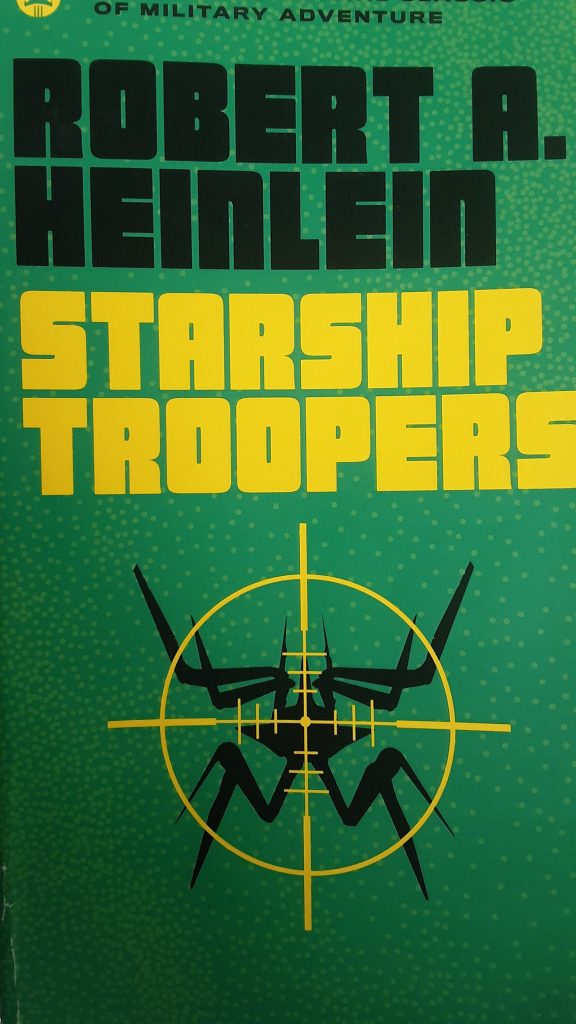By Robert A. Heinlein

Starship Troopers is said by some to mark Robert Heinlein’s transition from juvenile fiction to adult. Written in a week or two, in response to the nuclear test ban of the late 1950s, it follows the adventures of a young military recruit on future earth in a time when the planet is at war with an alien bug civilization known as the arachnids from Klendathu. It won the Hugo ward of 1960 for best science fiction and is considered influential to military science fiction.
The plots follows Juan ‘John’ Rico through boot camp, combat training, battle, and officer’s school as he works his way up to eventually command his own unit. In between we see flash backs to Rico’s school classroom where his instructor, Jean V. DuBoise, discusses in glowing terms the current political state, where earth is unified under a military government where society is stratified into citizens who have voluntarily served the military government and therefor earned the right to vote, and civilians who have not.
The book has been called controversial because it appears that Heinlein, a military veteran, discusses the benefits of corporal punishment and a future society where the right to vote is earned only through service to the military elite. It has even been called fascist. On the surface, perhaps it is. Human existence is described as a struggle for power through violence, and in Heinlein’s utopia the violence is no longer aimed at other humans but at alien bugs. On the other hand, military service is not compulsory, and there seems to be general prosperity even among civilians, a group from which the main character comes. Also, given character names and snippets of character origin, such as Rico’s use of Tagalog at home in Buenos Aires, it appears that in this society race and national origin is no longer an issue as it is today. While, general prosperity and lack of racism are things we are missing today, this militaristic society at constant war does not feel like utopia to me. Perhaps for Heinlein and others it does.
Paul Verhoeven’s 1997 film seems to take shots at the fascist elements of Heinlein’s novel, with over the top Philip K. Dick-ian propaganda, military recruitment advertisements, and cartoon level gore. Missing from the film are the mechanical exoskeleton suits, and the personal insight into the transformation of the main character from a cadet who joins because his friends are into battle hardened but mature and thoughtful leader. He learns to trust in those he commands. It is action packed and introduces us to the mechanical suits, popularized by many films today, like Alien. I recommend reading the book and watching he film. They compliment the discussion around any perceived controversy.